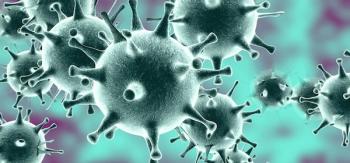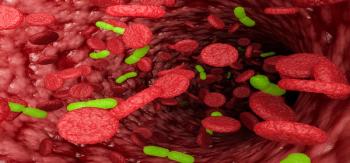
Pharmacists are the primary drivers of their destiny, according to a new report, and they will continue to drive change in the industry by demonstrating their value, securing compensation, and advocating for expanded roles.

Pharmacists are the primary drivers of their destiny, according to a new report, and they will continue to drive change in the industry by demonstrating their value, securing compensation, and advocating for expanded roles.

The results of a systematic literature review published in CNS Drugs suggested that brexanolone injection, the first therapy approved by the FDA for the treatment of postpartum depression, is more effective than selective serotonin reuptake inhibitors in the treatment of women suffering from postpartum depression.

Diclofenac sodium topical gel was first approved by the FDA in 2007 as a prescription drug, and was indicated for the relief of osteoarthritis pain in joints responsive to topical treatment, particularly the joints of the hands, knees, and feet.

In the pivotal phase 3 KEYNOTE-355 study, pembrolizumab (Keytruda, Merck) combined with chemotherapy met one of its dual primary endpoints of progression-free survival (PFS) as a first-line treatment for patients with metastatic triple-negative breast cancer (TNBC) whose tumors expressed programmed death-ligand 1 (PD-L1).

The once-daily solution will be the first once-daily eye-itch allergy-relief drop to be available without a prescription in the United States.

Eisai has applied to voluntarily withdraw lorcaserin hydrochloride (Belviq) in both its original and extended release forms.

Results from a new retrospective analysis have shown that patients prescribed tiotropium bromide (Spiriva Respimat) inhalation spray 1.25 mcg experienced fewer asthma-related exacerbations when the treatment was added to a combination inhaled corticosteroid and long-acting beta2 agonist (ICS + LABA), compared with patients who received an increased dose of ICS + LABA.

Although the number of US cases is still low, experts are raising concerns that the US reliance on China for pharmaceutical ingredients could result in drug shortages as Chinese officials battle the outbreak.

A new economic analysis published in JAMA found that the implementation of reference pricing increased the percentage of prescriptions filled for the lower-priced drugs within each therapeutic class, while simultaneously increasing patient cost sharing and decreasing overall prices paid.

The use of TikTok to reach patients is growing in the health care community, but is it a good fit for pharmacists?

Researchers from George Washington University have shown that the human apolipoprotein A-I binding protein (AIBP) is capable of inhibiting HIV replication by targeting lipid rafts and reducing virus-cell fusion.

Despite the FDA’s greenlighting of 1171 drugs in 2019, new research does not show large savings for consumers.

Based on molecular similarities in human and canine diffuse gliomas, researchers have posited that working to cure brain cancer in dogs may lead to improved treatments and even a cure for humans.

Several immunization recommendations were updated for pediatric patients, including haemophilus influenza type b (Hib) vaccination, and Tdap vaccinations.

While KTE-X19 is not yet approved in any country, its Marketing Authorization Application has been validated in the European Union, and its target action date in the United States is August 10, 2020.

Study suggests that the ACA improved financial risk protection against medical bills for low-income adults.

There is still no vaccine or effective antiviral treatment for the novel coronavirus (2019-nCoV) that continues to spread worldwide, and health care providers should be aware of the symptoms.

The survey, administered by the National Community Pharmacists Association (NCPA), aimed to evaluate how pharmacists and their patients are handling concerns about 2019-nCoV.

A new report from the Florida Pharmacy Association and American Pharmacy Cooperative, Inc, alleges that pharmacy benefit managers (PBMs) in the state are favoring their own affiliated pharmacies in the Florida Medicaid Program, both by driving customers to those pharmacies and by reimbursing them at higher rates.

Tedros Adhanom, PhD, director general of WHO, concluded his statements in the WHO press conference by reiterating that while 2019-nCoV is of global concern, it should not lead to widespread panic.

Not only is cancer control a matter of public health, but its value should be viewed as an investment with considerable human and economic returns, according to a newly released report from the World Health Organization (WHO). Furthermore, although disparities between cancer care in lower- and higher-income countries may seem overwhelming, the report emphasized that they are entirely solvable with effective national cancer control plans.

The report noted that 8 of the 10 leading causes of death saw lower rates of death in 2018.

In a tele-briefing Thursday, the CDC also reiterated that the threat to the general public in the US is still low.

Although there are no approved therapies for FSHD, researchers at Fulcrum Therapeutics discovered that inhibition of p38α/β reduced expression of the DUX4 gene in muscle cells derived from patients with FSHD.

Generic versions of several important drugs may soon enter the market, possibly increasing access for patients and lowering prices.

Iron deficiency anemia is a condition that affects nearly 1 billion people globally,1 in which the blood lacks adequate healthy red blood cells, often leaving those with the condition tired and short of breath.2

The FDA has approved triple-combination extended release tablets to lower blood sugar in adults with type 2 diabetes (T2D), when combined with diet and exercise.

The virus, first seen in Wuhan, China, is characterized by mild to severe respiratory illness, including fever, cough, and shortness of breath.

FIRST Omeprazole Kits offer a pre-measured option for pharmacists dispensing suspended Omeprazole.

A blood-based screening test using cell-free DNA may be able to identify cancer at earlier stages than what was previously possible, according to research to be presented at the American Society of Clinical Oncology (ASCO) Gastrointestinal Cancers Symposium, held January 23 to 25 in San Francisco.